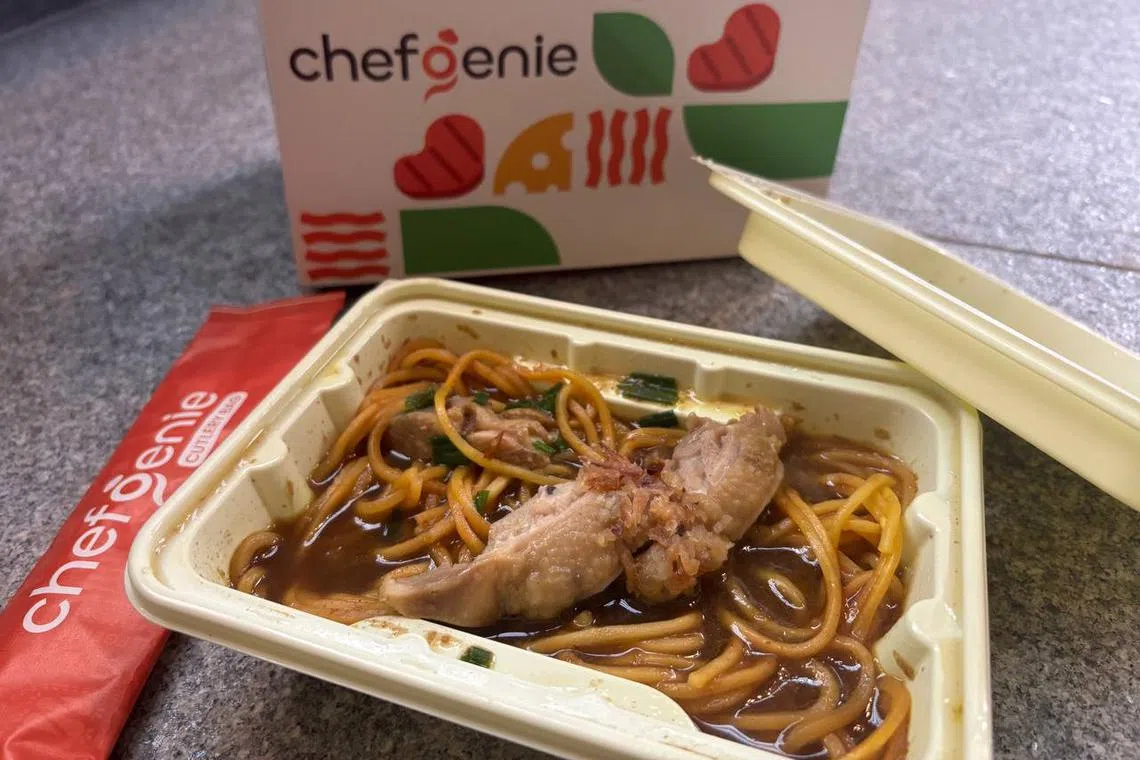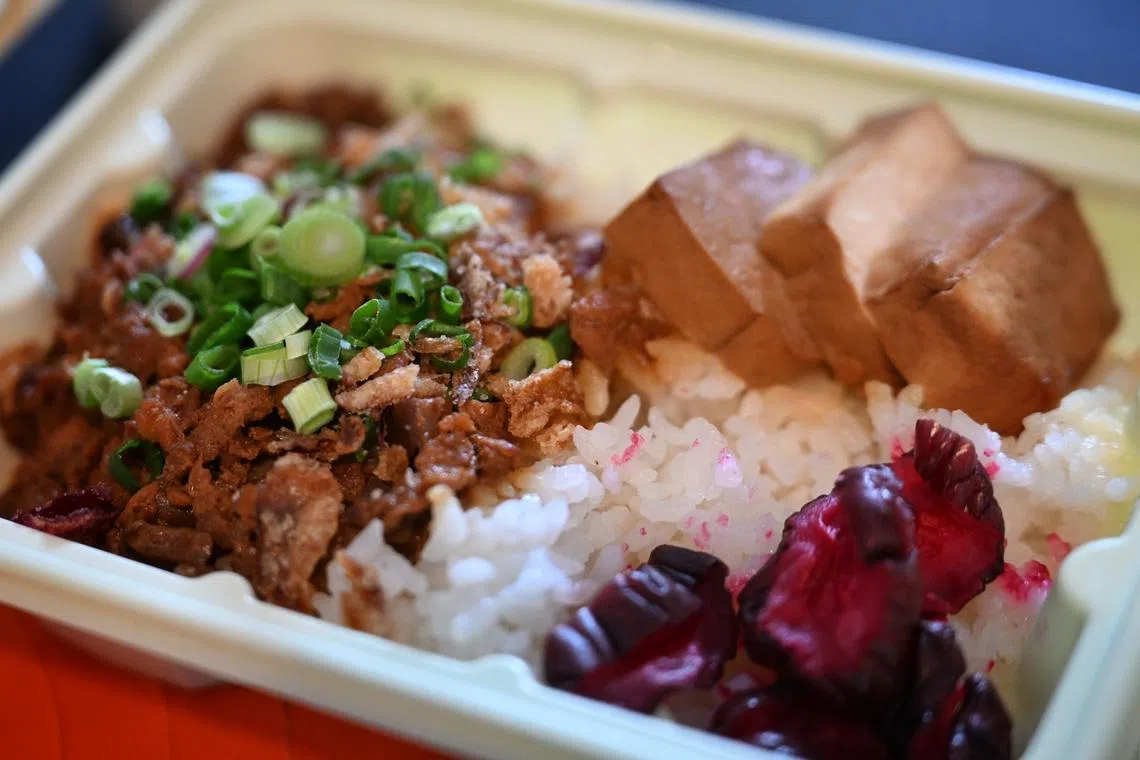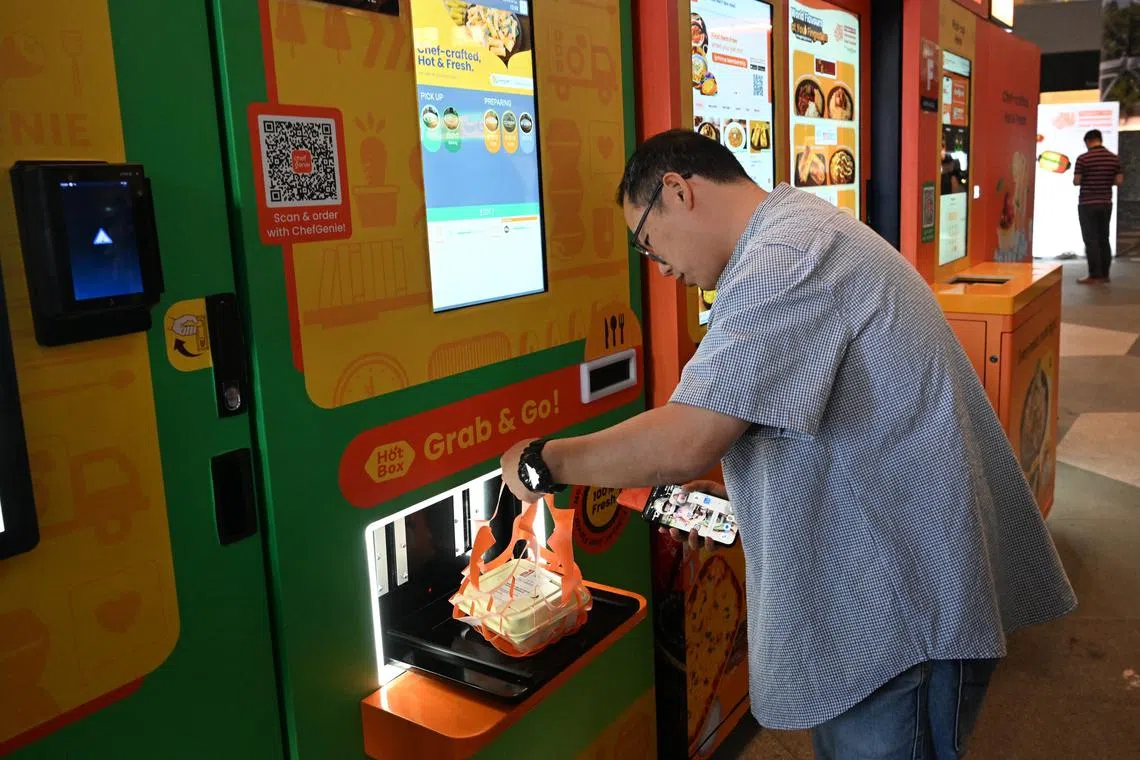Hot to go: Meals from home-grown brands like Springleaf Prata, Takagi Ramen now available in machines
Sign up now: Get ST's newsletters delivered to your inbox
SINGAPORE – Ever craved a piping hot chicken briyani from Springleaf Prata, but could not find an open outlet nearby in the middle of the night?
You can now get your fix at one of 120 InstaChef machines across Singapore serving up meals from a variety of home-grown brands, in a six-month pilot programme by food technology company Aikit to test how food and beverage companies can expand their reach without an over-reliance on manpower.
Apart from Springleaf, other household names in the trial include Shihlin Taiwan Street Snacks, Takagi Ramen, Tuk Tuk Cha, and Warong Pak Sapari, which has been listed on the Michelin Guide’s Bib Gourmand.
Each meal costs between $4 and $8, and the portion sizes are comparable to the amount served by the brands in their physical stores, said Mr Sky Goh, Aikit’s vice-president of business and operations.
He was speaking to The Straits Times on Sept 9 on the sidelines of the programme’s launch at Punggol Coast Mall, where six machines have been set up for customers to order from until Sept 14.
Unlike most traditional vending machines that microwave pre-cooked and frozen meals, the InstaChef machines use an induction cooker to prepare the meals, said Mr Goh, adding that this cooking method helps to ensure a restaurant-quality meal.
Meals can be ordered at the machine, or via the ChefGenie app, so customers can reduce time spent waiting around. Only card payments are accepted.
During a taste test done by ST, the machine took around four minutes to prepare a $7.44 chicken mee soto from Warong Pak Sapari. Each meal comes in a cardboard bag, and with a set of wooden cutlery.
The dish we ordered was dispensed warm, with a flavourful broth, chewy noodles and fairly generous portions of chicken. But for a meal that can be found commonly and at more affordable prices in hawker centres, some customers might find the portion size a tad small for the price point.

The machine took around four minutes to prepare a $7.44 chicken mee soto from Warong Pak Sapari.
ST PHOTO: SARAH KOH
The machines are owned by Aikit and powered by ChefGenie, an initiative launched in 2023 to combine chef-prepared recipes with smart kitchen technology.
They can be found in office buildings, residential areas, and schools such as Ngee Ann Polytechnic and the National University of Singapore.
Sensors built into each machine help to detect when specific ingredients are low in stock, which will prompt a notification to be sent to employees back at the central kitchen in Pandan Loop to replenish stocks.
Each machine also tracks the popularity of items specific to the location it is in, and makes real-time adjustments to the menu. Before the pilot began, only ChefGenie meals were available for order via the machines.

Taiwanese braised chicken rice from Shihlin Taiwan Street Snacks prepared by the InstaChef machine.
ST PHOTO: CHONG JUN LIANG
Items such as beef lasagna and macaroni and cheese received more orders at machines located in schools, while Asian dishes were more popular in locations with an older customer demographic, said Mr Goh.
Such information will allow the central kitchen to decide which items to prepare more of.
“When we know the locations, demographic of customers, and the type of food they eat, we are able to cut down on wastage by redirecting resources to other machines,” said Mr Goh.

As opposed to most traditional vending machines that microwave pre-cooked and frozen meals, the InstaChef machines use an induction cooker to prepare the meals.
ST PHOTO: CHONG JUN LIANG
Senior Minister of State for Trade and Industry Low Yen Ling said the machines are “autonomous kitchens” that can help businesses to lower their capital, manpower, and rental costs.
“They can be deployed in a variety of locations where it may be harder for traditional F&B outlets to set up shop,” said Ms Low at the launch on Sept 9.
“This can include schools, hospitals, residences and industrial areas... In recent years, it has become challenging for schools to find canteen food stall operators. Autonomous kitchens can fill this gap.”



